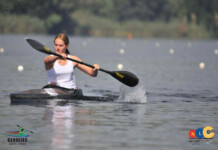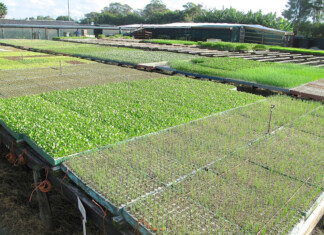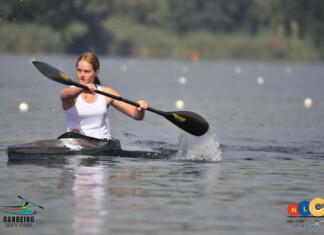He produced three seasons of Survivor SA — two of them in the Eastern Cape — but now producer Handrie Basson is immersed in a reality show of a very different kind.
Klein Paradys (Little Paradise), which will be broadcast with English subtitles on DStv’s Kyknet channel in October, is a unique concept in which six couples turn six small cabins perched in the Western Cape’s Elgin valley into five-star guest units.
Contestants will have just 25 days to transform a tight 21m² micro unit into a luxury getaway cabin containing a bedroom area, living space, kitchenette and bathroom.
The winning couple will take home R1m.
The media was treated to a sneak peek of the show which will be hosted by radio and television presenter Robbie Kruse at the Silwerskem film festival which was held in Cape Town last week.
Basson, who owns production company Afrokaans, says competing in Klein Paradys is tougher than being a castaway in Survivor SA.
Weekender asked him:
Q: How different was it to produce a renovation show compared to Survivor?
A: A big difference was that on Survivor it’s an established format, so it’s your job as a producer to bring in new elements and make tweaks and twists to an existing recipe that works really, really well.
You know the logistics that are required, you know how the show is put together technically and you know the schedule.
With this, every day was a brand new day. We had to pivot when we planned certain things that were supposed to take three days but might actually take five days and how that affects the rest of the schedule.
So from creating a brand new format off an idea into actually making it into a show that is hard work; thinking on your feet every day and problem-solving.
Q: What were the biggest design mistakes made by the contestants?
A: I think losing sight of how to optimally maximise comfort, manoeuvrability and living space in such a small space of only 21m². That was the major challenge.
To fit all things in — a bedroom, living space, kitchen and bathroom. It takes a certain approach and eye to be able to maximise that space in the best possible way.
It’s not a permanent dwelling, so there are things that are not necessarily required in a guest unit.
And you need to have storage because you must have somewhere to put a suitcase or you will keep tripping over it.
Part of the pressure cooker was that they had to order their building supplies. Some supplies were available for them on-site but others had to be ordered.
They had to manage their budget and that takes a long time. And they had to pivot when things were not available but they still had to complete a certain space in a certain phase.
That was something they found very challenging. This is not a normal renovation project when you determine your own timeline and manage your own budget.
You’ll see what happens when people don’t get their stuff on time. They have to make do or make a different plan or run out of money. And they have to become innovative.
The ability to endure and find a plan B is so evident. It’s who we are as a people. We always find a way. We always make a plan.
Q: Will there be another Survivor SA?
A: We have no idea. It doesn’t look like it’s on the horizon any time soon, but we remain hopeful. We love the show.
It’s a very expensive show to make because of the duration you’re on location and there are a lot of logistical costs attached to that. I do think the heyday of these big budget reality shows is a thing of the past.
Funders will have to choose very carefully where they put their money and make sure they get the best exposure possible for a show like this. And I do believe that editorial strategies change from a broadcaster’s perspective.
Survivor is still a very strong staple the world over. It’s a very popular format. Every year there are new territories that do it, but unfortunately we are not currently in that space right now and therefore you look for other opportunities.
Q: Like Klein Paradys?
A: It’s a new concept completely. Afrokaans has been involved in tailor-making the idea in the development phase.
The big thing for us was to differentiate it from anything else out there.
Renovation competition shows are such a popular genre and we just can’t compete with the overseas offerings because they often have massive budgets. Or they are long-running shows with huge success and sponsorship support.
For us, it was very important to distinguish the show from anything else.
So we looked at the trend of tiny home living which is very big globally. People are scaling down. We see it in our own country as well.
So we thought that was a great opportunity. Not that this is an educational show, it’s an entertainment show, but you will pick up tips if you are interested in looking at a small space to convert or to create from scratch.
So the micro unit appealed to us. We are a nation that loves being outside. We love short weekend breaks and so we deliberately placed it in a hospitality space — once again to differentiate it from anything else because most of what you see on the competition side is residential units.
It changes your design perspective and strategy because you have to think of guest amenities and comforts and how easy it is to service those units and you’ll see that become a narrative all the way through.
It’s very easy to design what you like and what you would enjoy, but you have to maintain that general appeal.
We wanted the six contestant duos to each have their own design aesthetic and to each have their own personalities and the talent and creative impulses of our duos reflected in the designs and in the execution.
It is this unique place that’s going to live for the public to go and enjoy.
Q: Who is going to own the completed guest micro-units after the show?
A: It’s an establishment called Old Mac Daddy. They are a resort with Airstream cabins. And this is a new part of their resort so they will be managing it and running it as a self-catering resort.
Q: Why do you think viewers will love this show?
I hope people tune in because they have certain expectations of a renovation show, but I really hope that people fall in love with our duos. They are all so unique. Whatever their relationship is, it brings with it it’s own layers of dynamics and emotionality.
More than anything, this is a social experiment for these 12 people in this specific environment. How they deal with disappointment and stress and success.
And that beautiful thing of a partnership — when one is down the other is up and how they support one another and sort their problems out.
I’m almost less interested in how they execute the spaces and more interested in their journeys and development and how they got there.
Q: Which show is tougher on contestants?
A: I think Klein Paradys is harder. The pressure is constantly on. There’s a deadline the whole time. It is physical labour. It’s really tough.
They have to do most of this work themselves. There is a physical thing staring you in the face that measures your progress from day to day. So if you’re behind you see it. You’re constantly reminded of it.
Whereas on Survivor it’s incredibly physically taxing and it’s a psychological game and there are eliminations so the dynamic changes the whole time.
In this show, people don’t get eliminated. They are stuck there with each other and have to see it through.
It is really challenging but also incredibly rewarding.







